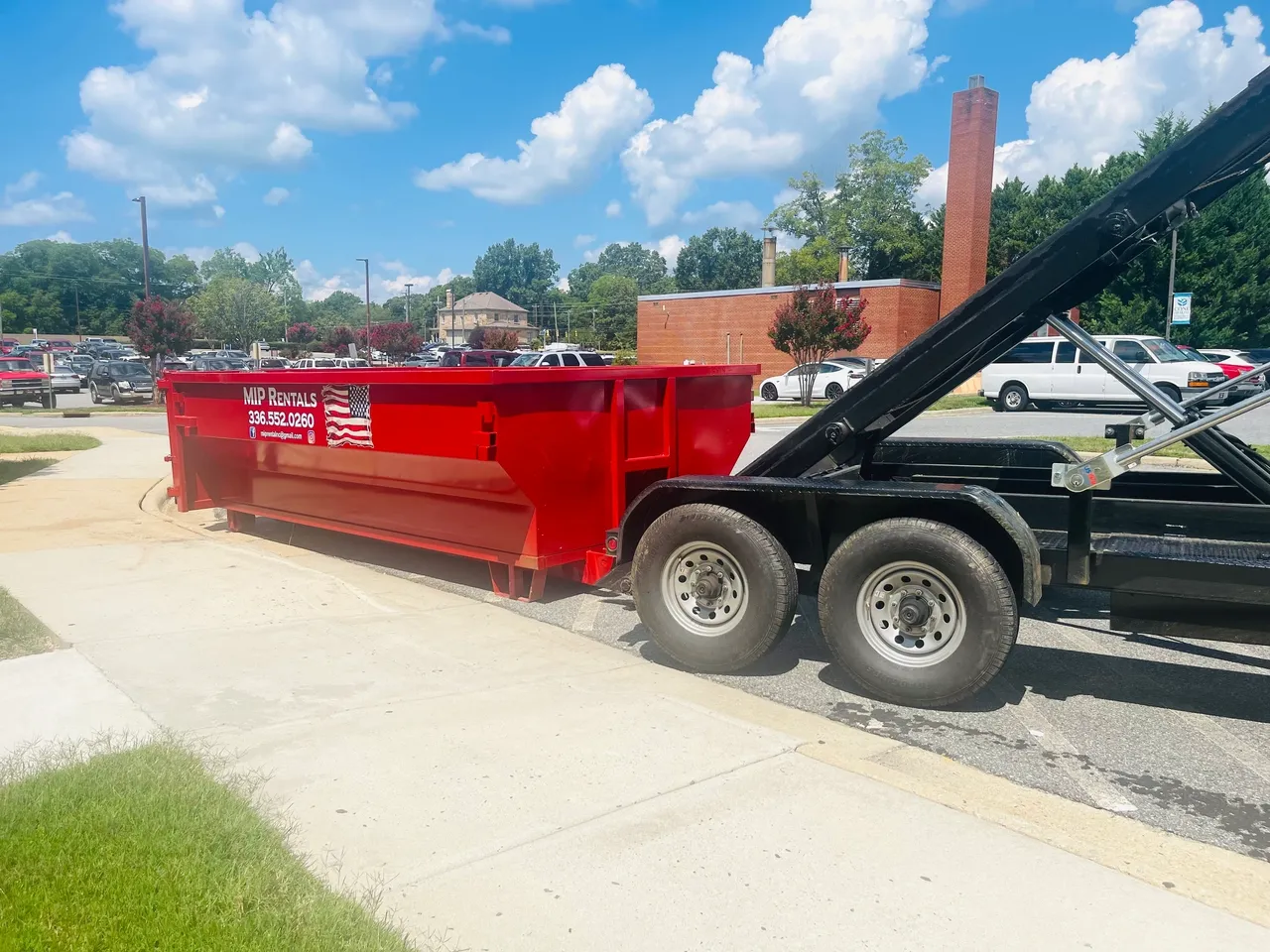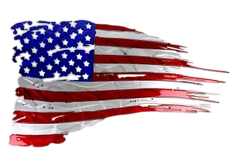Before you start tossing things into a dumpster, it’s important to know what can actually go in. Not everything is allowed, and putting the wrong items inside can lead to extra charges or a pickup delay.
Some things, like furniture or yard waste, are usually fine. Others, like paint, batteries, or chemicals, can be unsafe and need special handling. Taking a few minutes to learn the rules can save you time, money, and trouble later.
This guide will help you figure out what’s okay to throw away and what should stay out.

Why It’s Important to Know Before You Toss
Before you start throwing things into a dumpster, there is something important to keep in mind. You cannot just toss in anything and everything. Some things are okay to throw away, but others are not.
If you put in the wrong items, you could be charged extra. The dumpster might not get picked up. Some things like paint, batteries, or cleaning products can even be unsafe for people and the environment.
That is why it helps to know the rules before you start. When you know what can go in and what should stay out, you can:
- Save money
- Avoid delays
- Keep people safe
- Protect the planet
So whether you are cleaning out your garage, working on your yard, or remodeling your home, it is smart to check first. A little planning now can help everything go smoothly later.
How to Tell What’s Okay and What’s Not
When you rent a dumpster, you can’t throw in just anything. Most dumpster companies sort items into three groups:
Allowed – These are things you can throw away. That includes wood, yard waste, drywall, furniture, and trash from cleanups.
Sometimes Allowed – These items might be okay, but you need to ask first. This list can include tires, mattresses, and appliances.
Not Allowed – These should never go in the dumpster. That means paint, oil, batteries, chemicals, or anything else that could be dangerous.
If you’re not sure about something, ask the company before you toss it. It’s the best way to avoid extra charges or delays.
Next, we’ll go over what belongs in each group.
Things You Can Usually Throw Away
When you rent a dumpster, there’s a lot you can toss in. Here’s a list of stuff that’s usually okay:
Household Junk
You can throw out things like:
- Old couches, chairs, and tables
- Cardboard boxes, books, paper, and magazines
- Clothes, blankets, and toys
- Small kitchen stuff like pots, pans, and toasters
Remodeling and Construction Waste
If you’re working on a home project, you can usually toss:
- Wood, drywall, tile, and plaster
- Cabinets and countertops
- Carpet or vinyl flooring
- Concrete, bricks, and shingles (some areas need a special dumpster for heavy stuff, so check first
Yard Waste
Cleaning up outside? These are usually fine:
- Branches, grass, leaves
- Small rocks and dirt (but some companies have limits, so ask)
Other Common Items
You can also get rid of:
- Scrap metal
- Plastics
- Empty paint cans (but only if they’re completely dry)
One More Thing
Don’t fill the dumpster too high. If things are piled above the top, the company might not take it—and you could be charged extra.
Things You Might Be Able to Throw Away (But Check First)
Some items are not always allowed. It depends on your local rules and the dumpster company. Always check first.
Mattresses
Some companies take them. Some don’t. Others charge extra or ask you to wrap them.
Electronics
Items like TVs, computers, and phones may need to go to a recycling center. Some states do not allow them in dumpsters.
Appliances
Microwaves are usually okay.
Fridges, freezers, and air conditioners are not okay unless the Freon is removed by a licensed person.
Painted or Treated Wood
Deck boards or old painted wood may have chemicals or lead. Some companies do not allow this.
Other Items to Ask About
- Tires
- Car batteries
- Roofing shingles (may be allowed but with weight limits)
Things You Should NEVER Put in the Dumpster
Some items are not allowed because they are dangerous or harmful. Do not put these in the dumpster:
Hazardous Waste
- Wet paint, oil, gas, or fuel
- Bleach, cleaners, or bug spray
- Pool chemicals
These can hurt people or pollute the ground and water. Take them to a hazardous waste center.
Medical Waste
- Needles or syringes
- Expired medicine
- Bandages with blood
These are not safe for trash workers. They must go to a medical drop-off site.
Car Items
- Tires
- Car batteries
- Engine parts with oil or gas
Tires can catch fire. Batteries have acid. Most auto shops will take them for free or a small fee.
Asbestos and Moldy Items
- Old building materials with asbestos
- Moldy drywall or insulation
These need special removal. Do not put them in the dumpster.
Where Should These Banned Items Go?
If you can’t put it in the dumpster, here’s where to take it:
Hazardous Waste
Check your city or county website. Many places have drop-off days for oil, gas, cleaners, and other harmful items.
Electronics
Stores like Best Buy or Staples take old TVs, laptops, and phones. Some local recycling centers accept them, too.
Paint and Chemicals
Programs like PaintCare help you drop off leftover paint. For other chemicals, contact your local waste center.
Car Batteries and Oil
Auto parts stores like AutoZone and Advance Auto Parts usually take used batteries and motor oil.
Tires
Most tire shops or recycling centers will take old tires. There may be a small fee.
Appliances with Freon
Fridges, freezers, and AC units need the Freon removed first. Then, they can go to a recycling center.
Why Local Rules Matter
What you can toss in one town might get you a fine in another. Some states have strict dumping laws. Others don’t. And on top of that, each dumpster company has its own set of rules.
Before you start throwing things away, take a minute to check:
- What your city or county allows (you can look online or call them)
- What the rental company says in their guide or contract
- If there are extra fees for certain items
- If they have a list of things you’re not allowed to throw in
What Happens If You Throw Away the Wrong Stuff?
Throwing the wrong things in a dumpster can cause problems. It’s not just about breaking rules—it can cost you money and slow things down.
Here’s what might happen:
- You could get charged extra
- The dumpster company might not pick it up
- You could get fined by the city
- It could hurt someone or harm the environment
Some items are dangerous. Others need to be handled a certain way.
Easy Tips Before You Load the Dumpster
A little planning makes things easier.
Here’s what to keep in mind:
- Don’t pile items above the top. The dumpster won’t get picked up if it’s too full.
- Put heavy stuff like bricks and concrete at the bottom.
- Sort as you go. Keep trash, recyclables, and donations in separate piles.
- Not sure about something? Ask the dumpster company before you toss it in.
These quick steps help avoid problems and extra charges.
Frequently Asked Questions
Can I throw furniture in the dumpster?
Yes, most furniture, like couches and chairs, is okay. Just make sure it’s not soaked in chemicals.
What if I toss something that’s not allowed?
You could be charged extra, or the dumpster might not get picked up. Always check first to avoid problems.
Can I put paint cans in the dumpster?
Only if the paint is completely dry. Wet paint has to go to a hazardous waste site.
Can I toss appliances like fridges or AC units?
Not unless the Freon is removed by a pro. If not, take them to a recycling center.
Where do banned items go?
Check local drop-off sites or recycling programs. Many stores and centers will take them.
What to Do Before You Load the Dumpster
Dumpster rental in Stokesdale, NC, can make cleanouts, remodels, and yard projects much easier. The key is knowing what you can throw away and what you need to keep. A little planning helps you avoid delays, extra fees, and safety issues.
Choose a local company you can trust. MIP Rentals makes the process simple from start to finish. No surprise fees. No delays. Just dependable service that fits your project. Email us today at miprentalnc@gmail.com. Contact us today!

